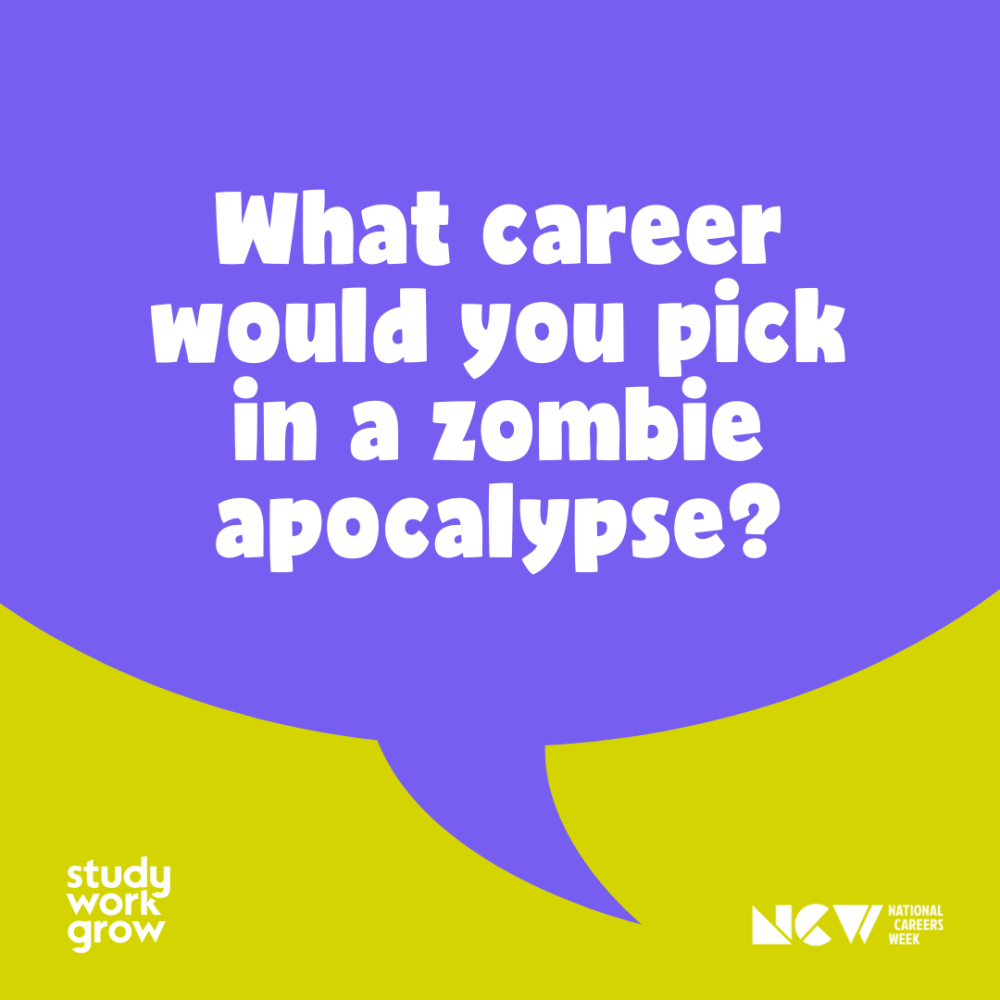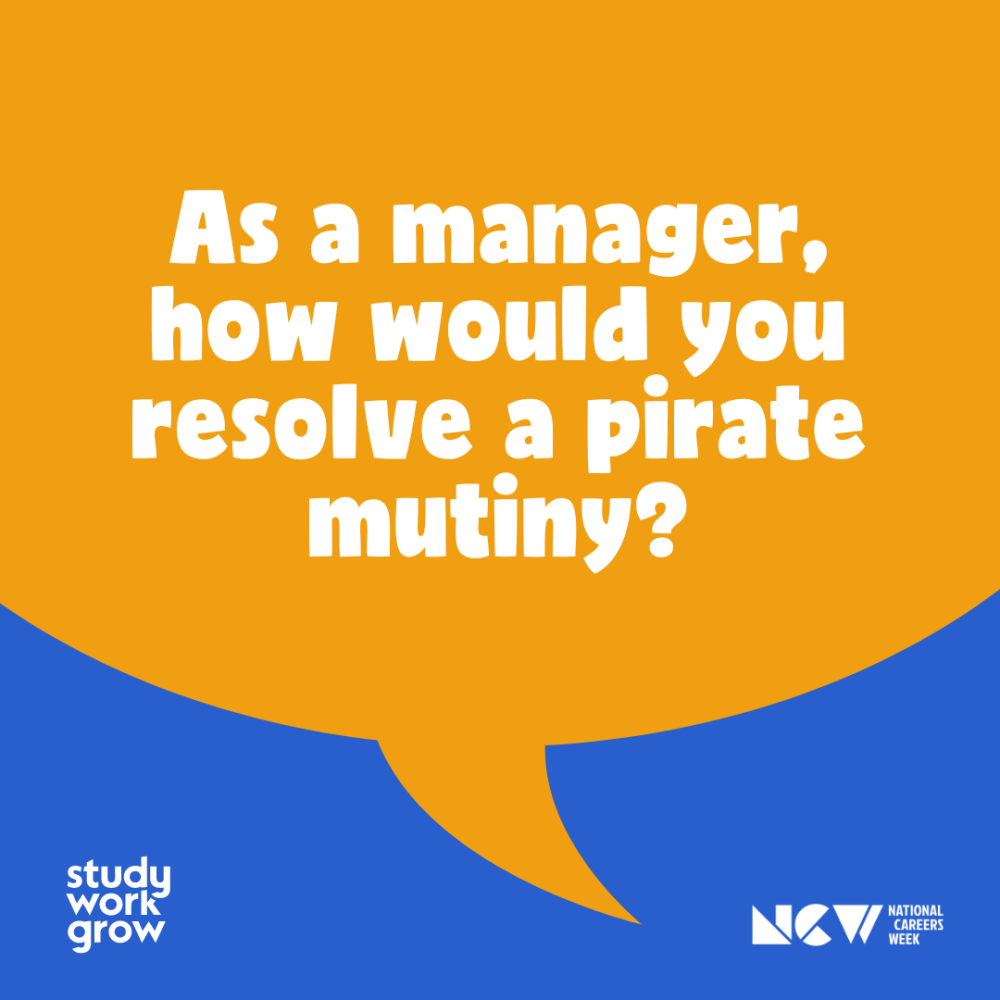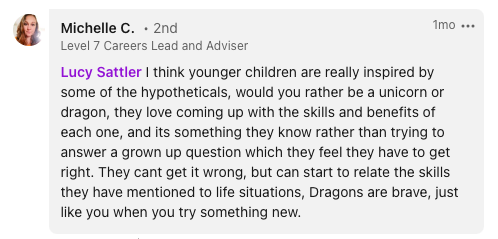|
Getting your Trinity Audio player ready...
|
Career conversations with kids and teens often look different from what we expect. They rarely take place in a 15-minute career consult, but rather, come up during the drive to basketball practice or after a spontaneous comment on someone’s job choice. Career conversations, just like other conversations, are very rarely neat and tidy; they ebb and flow as running discussions over multiple interactions.
The “good stuff” often happens in this messy, dynamic space, which is one of the reasons why I value opportunistic career conversations almost as highly as formal ones.
I’ll start by explaining why I feel that some of the most important conversations we have may not be serious at all, and then give a couple of examples of “alternative” career conversation prompts that can be fun and effective.
We need time to percolate our ideas and opinions
The first reason dynamic career conversations matter is that we can’t just make decisions on the spot. We rarely make concrete decisions that can’t be reversed. Most of our decisions move between states – from solid to fluid to not visible – and that’s ok.
Conversations naturally take place over time because we need time to work things through, especially when they are important. I find the same thing occurs in career counselling sessions; a student can only work through so much in a single session. Often, and especially if I’ve challenged their thinking, they’ll need a week or two to think things over and have other conversations with the people in their lives before we can move on to the next part of the decision. They need time to percolate.
Conversations don’t have to be ‘serious’ to matter
Elements of our conversations bleed into each other – it’s impossible to stop it from happening.
I’ve had career conversations with adult clients that covered the death of a spouse, global conflict, moving overseas and, in the same session, we shared our preference for tea over coffee and laughed about how Benedict Cumberbatch says ‘penguin.’ The non-serious elements of the conversation were somehow not less important.
In fact, the non-serious stuff probably helped us get through the serious stuff.
We sometimes need to talk about things that are hypothetical (even fantastical) to help us build relationships and lay the groundwork for important discussions.
It’s easier to think when we remove the pressure
At Study Work Grow, an Australia-based career exploration organization, we created a series of Career Conversation Cards for National Careers Week. As part of the conversation that took place around those cards on LinkedIn, Careers Lead Michelle Cheshire pointed out that having ‘mythical’ conversations is much easier for young children.
Moving into the hypothetical realm creates space from the assumptions and limitations that can hinder career exploration. Not only does this open up possibilities, but it also removes the pressure; the cognitive load is reduced, because they’re not trying to balance multiple competing priorities. They don’t need to “factor in” anything other than the things they’re interested in, and this is incredibly liberating.
Diving into ‘alternative’ Career conversations
I should start out by saying that, yes, we know these conversation starters are cheesy. We expect that teenagers will groan when they see these posters up at school – but hope they might still spark some ideas.
We designed these cards and posters to start lots of messy, unscheduled, quick career conversations, with no right or wrong answers. There’s just one question that gets them thinking, and then talking, and then thinking. Here are a couple of examples.

What career would you pick in a zombie apocalypse?
One of the things I notice first when I ask teenagers this one is that they start trying to define what a career is, and what it isn’t. In a zombie apocalypse, no one is getting paid, so jobs as we know them don’t really exist anymore.
In the same way, all the normal measures of success go out the window as we focus on survival – what will keep us safe and how will we find food? To answer the question, they need to think deeply about how they define a career.
Then, they start to think about how the things they enjoy and the skills they have might relate to survival skills. For example, someone who’s into makeup might start thinking they could use their skills to make humans look like zombies to blend in. Kids who enjoy physical activity often say they want to go out searching for food, and some who are considering careers in healthcare start coming up with ideas for a zombie cure.
The beauty of this conversation is its ability to remain just one or two steps away from reality, while also upending our assumptions about what matters.

As a manager, how would you resolve a pirate mutiny?
My 12-year-old, Lincoln, didn’t miss a beat when I asked him this one: “I’d give everyone their own well-being parrot.” Love it. Problem handled, no negativity and everyone gets a parrot.
This question is designed so that students are thinking about typical work-type behaviour (managing teams and resolving conflict) in a highly unusual situation (pirate mutiny).
This question leads into two types of conversations. First, the practicalities of handling conflict at work or at sea, but you can also find yourself talking about whether you’d ever want to work in this kind of situation. Would you want to work in management, or does the idea repel you? How would you handle conflict in the workplace? There’s a lot to consider…
We’re just trying to start the conversation
There’s so much more we can do to spark unusual, dynamic career conversations. I love some of the other ideas that people come up with – Katherine Jennick and Liane Hambly‘s creativity fuddles come to mind, as do Tyson Day‘s dinner conversation sheets.
If you have creative ways that you start career conversations, then I’d love to hear about them. Please continue the conversation (see what I did there) and share in the comments.
This article was adapted from Lucy Sattler’s Pondering Careers newsletter.







